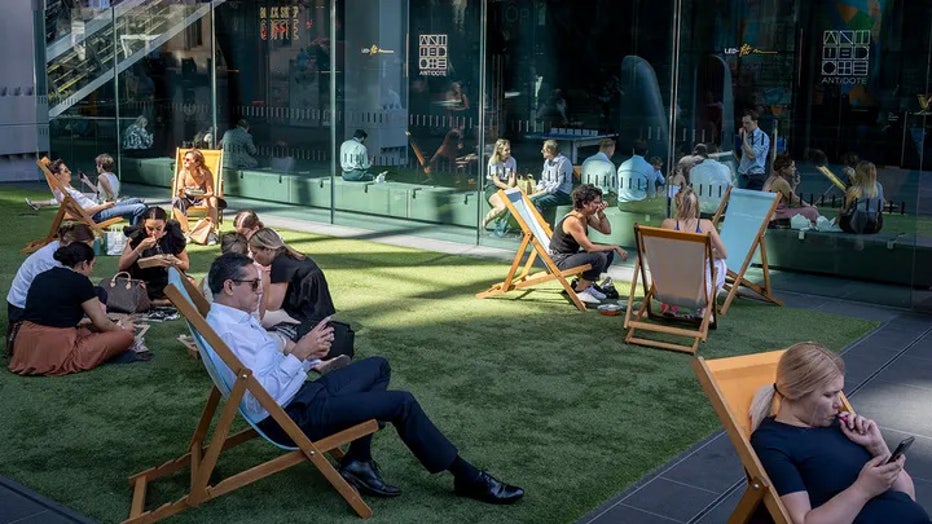'Bare Minimum Mondays' are the new workplace trend

File: Chinnapong / iStock / Getty Images Plus)
First came "quiet quitting;" now comes "bare minimum Monday" – the latest workplace trend receiving more and more support from the U.S. labor force.
"Bare minimum Mondays, I can go with that. How could I work hard on Monday?" one young man told FOX Business’ Lydia Hu on the streets of New York City during a "Varney & Co." segment on Monday. "I want to sleep in."
"Being able to chill on Monday and reset," another young woman added to the argument, "it's better."
"I just feel like everyone just gets lazy and doesn't do s**t," a second young man said. "I’m lazy and I’m guilty of it."
FORGET ‘QUIET QUITTING’: NOW WORKERS ARE STRESSING OUT COLLEAGUES WITH ‘QUIET CONSTRAINT’
The trend reportedly started on TikTok, Hu mentioned in her report, where mostly young workers who feel overworked and underpaid say they’ve started doing as little as possible to start off the week on Mondays.
"I do believe on Monday a full recovery will be very beneficial," a gentleman admitted.
The young man who'd previously expressed wanting to "sleep in" on Mondays additionally argued that "we’re always on our phones… looking at when our next break is."

Workers being able to have a "full recovery" and "reset" day on Monday is "better" for their work morale, some Americans argued on "Varney & Co." (Getty Images)
Amid a tight labor market with nearly two jobs for every unemployed American, other workers weren’t so open to the idea.
"Five days a week is fine," one person said. "[We’ve] been doing it a long time."
"They're [not] working," an older man criticized. "They want money from the government."
"People do not want to work, people are lazy," another woman said, condemning "bare minimum Mondays." "They want to do as least as possible."
At a time when the number of U.S. jobs available is greater than workers available, Hu warned that workers could have the leverage to pursue the new trend.
"Offices are still at about half of their pre-pandemic occupancy, and they're trying to avoid turnover. So they don't want to put too much pressure on the workers because they know that they'll likely just quit," Hu pointed out. "They don't have to work as hard as they once did."

Is the U.S. ready for a four-day work week?
Some companies are figuring out whether a four-day work week is realistic in the U.S., as new research shows it could be beneficial to employees and employers alike.
"Bare minimum Monday" comes on the heels of the "quiet quitting" trend, which refers to the personal decision to quietly stop working with great effort while exploring career options.
Some people are doing this because they recognize that despite their effort, working long hours or overachieving in other ways doesn’t do them any good, Amy Morin - a psychotherapist in the Florida Keys - previously told FOX Business.
"They may start to think more about what they’re missing out on rather than what they’re gaining by going above and beyond," Morin said. "They might grow concerned about the impact their work is having on their mental health and decide to scale back."
LINK: READ MORE FROM FOX BUSINESS
FOX Business’ Erica Lamberg contributed to this report.

